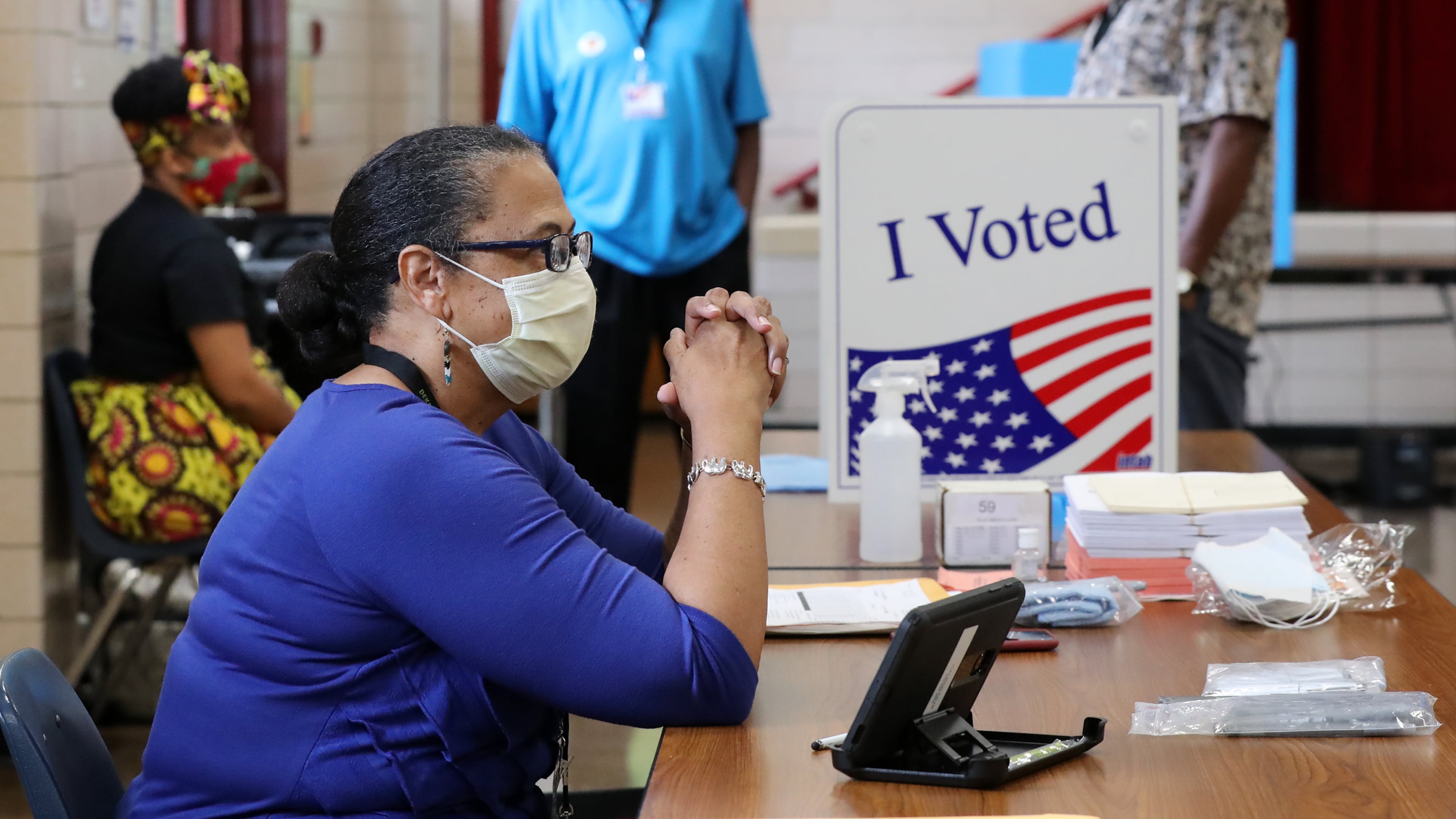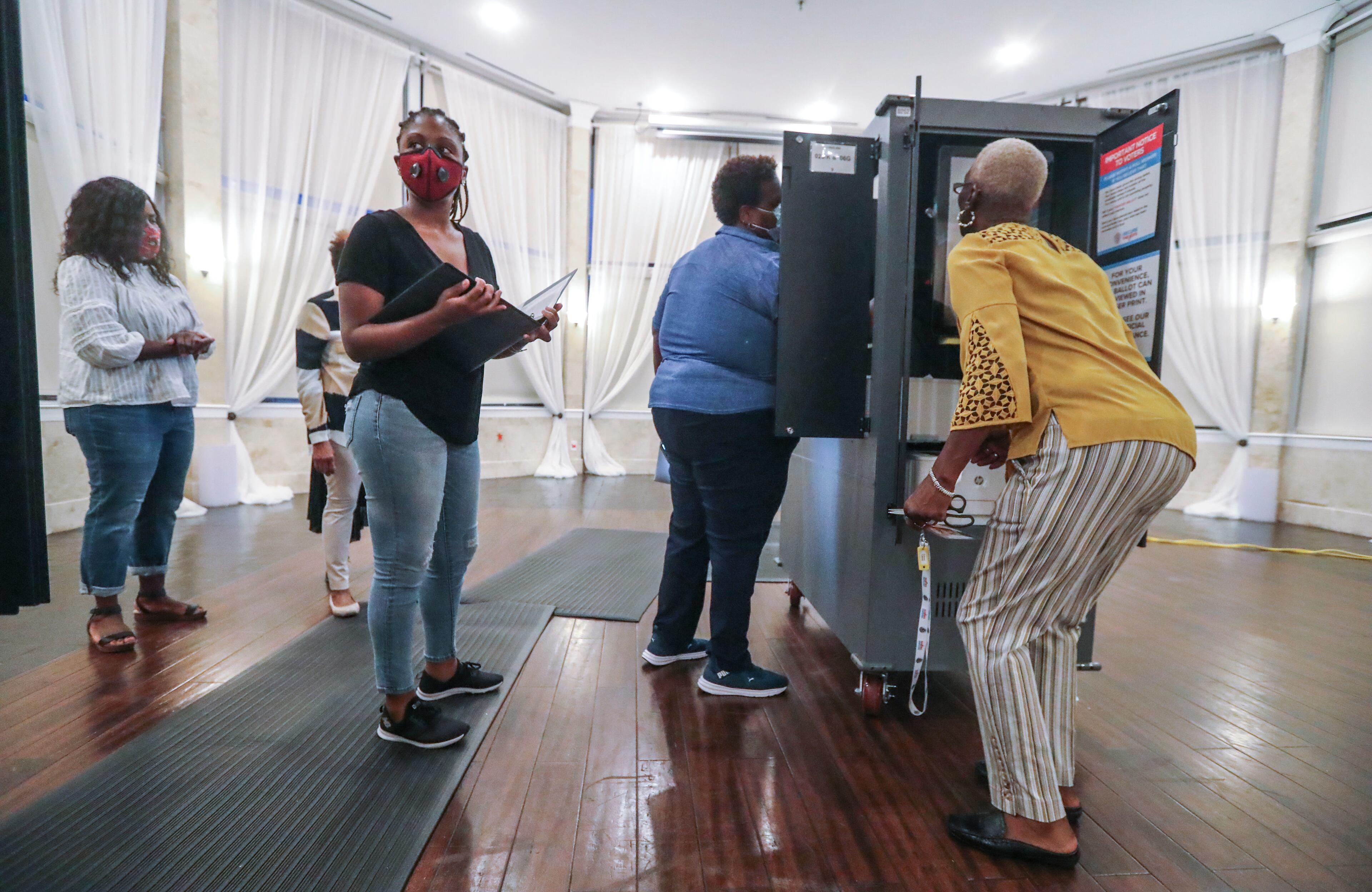Challenges loom for Georgia’s presidential election after runoffs

Georgia’s runoff was as much a warning for November as it was a success.
The uneventful, low-turnout runoff exposed cracks that could spell trouble for voters if they’re not corrected in time for the biggest election in state history, with over 5 million voters expected to participate.
While lines were short Tuesday, difficulties operating voting equipment, opening polling places on time and processing absentee ballots could quickly derail a more strenuous Election Day on Nov. 3.
The mellow runoff followed a difficult June 9 primary that created hours-long lines for some voters at precincts overwhelmed by the stresses of the coronavirus pandemic, social-distancing requirements, high turnout, precinct closures, poll worker shortages and a new statewide voting system.
Secretary of State Brad Raffensperger said the runoff was a successful test of Georgia’s election system, even though far fewer voters came out than in June. Now, election officials must work on recruiting new poll workers, training them on the state’s new voting machines and finding enough polling places, he said.
“Most everyone had a great day yesterday, but we have to really stay focused in on the November election,” Raffensperger said Wednesday. “We understand the new system, and we’ve been through a couple (election) cycles now. We also have new poll workers, and we understand how critically important it is to make sure we focus on our training.”

Many of the challenges of June 9 will likely remain when the presidential election arrives in 2 1/2 months, an election in a swing state that will attract national attention.
“No one should view yesterday’s runoff as a test run for November’s elections,” said Aunna Dennis, the executive director of Common Cause Georgia, a government accountability organization. “Yesterday was better than June, but better than June wasn’t the goal. The goal was to make sure every voter is able to vote safely, securely and in a reasonable amount of time.”
The most significant problems in Tuesday’s runoff were found in DeKalb, Floyd and Macon-Bibb counties, where poll workers struggled to operate voting equipment and open polls on time.
Poll workers had a hard time logging into voting computers, using voter check-in tablets, programming voter access cards needed to pull up ballots, and issuing emergency paper ballots.
Meanwhile, some voters said they never received their absentee ballots, and sometimes they had to repeatedly insert their ballots into scanning machines before they were accepted.
“If you come here and no one is voting, if everyone is standing in line and things are just not running, then we’re in trouble” in November, Donald Hickman, a truck driver, said after voting at New Life Presbyterian Church in College Park. “Things should not be down on Election Day.”
Many efforts are already underway to correct problems before the general election, Raffensperger said.
The secretary of state’s office has already heard from 3,000 people interested in serving as poll workers, more than halfway to the state’s goal of recruiting 5,000 new workers. Existing poll workers will also be retrained. A website coming online this month will allow any Georgia voter to order an absentee ballot.

County election officials are working to find new precincts, and Raffensperger said he’s reaching out to sororities, fraternities and Rotary Clubs to use their space as polling places. A website will display where lines are longest on Election Day. Officials will encourage voters to cast their ballots early, either by mail or at in-person advance voting sites.
Still, social-distancing requirements and 6-foot spacing between voting machines will limit the number of people who can vote at a time. Then, poll workers will need to wipe down and sanitize surfaces, contributing to potential delays.
“We can do better, and we must do better, for November as this pandemic continues to wrap our country in uncertainty,” said Aklima Khondoker, the Georgia state director for All Voting Is Local, an organization focused on voting access. “We must ensure voters don’t leave a polling place because they’re discouraged and ultimately disenfranchised.”
Voters said they see a need for more touchscreens and polling places.
But they also fear that the crush of voters who inevitably show up on Election Day will prove to be too much to handle, even if election officials do everything else right.
If half of voters wait until Nov. 3, in-person turnout on Election Day would be three times higher than during the state’s chaotic primary.
“Making sure everyone gets their absentee ballot on time is crucial, and having enough polling places is important,” Sarah Morgan, who works in the airline industry, said after voting at Park Tavern in Piedmont Park in Midtown. “After the disaster of the primary, I don’t think there’s time to fix it.”
How to prepare for the November election
Voters can already request absentee ballots so they can vote from home instead of at the polls. Absentee ballot request forms can be downloaded from the secretary of state’s website and then returned to county election officials. Absentee ballots for the Nov. 3 election will begin to be mailed to voters Sept. 15.
Voters can also check their registration information and precincts on the state’s My Voter Page at www.mvp.sos.ga.gov.
The deadline to register to vote in Georgia is Oct. 5, and in-person early voting begins Oct. 12.



